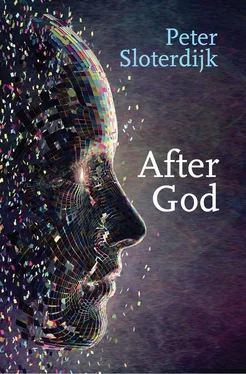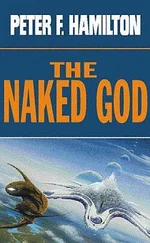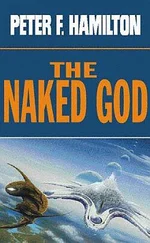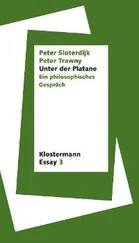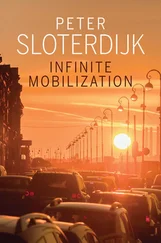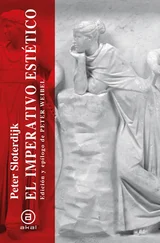1 Title page After God Peter Sloterdijk Translated by Ian Alexander Moore polity
2 Copyright page
3 Translator’s Note
4 1 Twilight of the Gods: “Every world of gods is followed by a twilight of the gods” I II III Notes
5 2 Is the World Affirmable? On the Transformation of the Basic Mood in the Religiosity of Modernity, with Special Reference to Martin Luther2.1 The eccentric accentuation 2.2 And they saw that it was not good 2.3 The derivation of the Reformation from the spirit of tempered despair 2.4 Protestant entropy Notes
6 3 The True Heresy: Gnosticism: On the World Religion of Worldlessness3.1 Where Nag Hammadi is located 3.2 How the real world finally became an error 3.3 A short history of authentic time 3.4 Gnosticism as negative psychology 3.5 Demiurgical humanism: On the Gnosticism of modern art References for Chapter 3 Notes
7 4 Closer to Me Than I Am Myself: A Theological Preparation for the Theory of the Shared Inside Notes
8 5 God’s Bastard: The Caesura of Jesus Notes
9 6 Improving the Human Being: Philosophical Notes on the Problem of Anthropological Difference Notes
10 7 Epochs of Ensoulment: Suggestions for a Philosophy of the History of Neurosis Notes
11 8 Latency: On Concealment8.1 Emergence of the krupta 8.2 Maximally invasive operation 8.3 Boxing in as latency production 8.4 Wadding up and unfolding 8.5 Intuitive integral calculus Notes
12 9 The Mystical Imperative: Remarks on the Changing Shape of Religion in the Modern Age9.1 Martin Buber’s Ecstatic Confessions as an epochal symptom 9.2 Religion in the age of the experiment 9.3 World arena and unmarked space Notes
13 10 Absolute and Categorical Imperative Note
14 11 News about the Will to Believe: A Note on Desecularization Notes
15 12 Chances in the Monstrous: A Note on the Metamorphosis of the Religious Domain in the Modern World, with Reference to a Few Motifs in William James Notes
16 Editorial Note
17 End User License Agreement
1 Cover
2 Contents
3 1 Twilight of the Gods: “Every world of gods is followed by a twilight of the gods”
1 iii
2 iv
3 vii
4 1
5 2
6 3
7 4
8 5
9 6
10 7
11 8
12 9
13 10
14 11
15 12
16 13
17 14
18 15
19 16
20 229
21 230
22 17
23 18
24 19
25 20
26 21
27 22
28 23
29 24
30 25
31 26
32 27
33 28
34 29
35 30
36 31
37 32
38 33
39 34
40 35
41 36
42 37
43 38
44 39
45 40
46 231
47 232
48 41
49 42
50 43
51 44
52 45
53 46
54 47
55 48
56 49
57 50
58 51
59 52
60 53
61 54
62 55
63 56
64 57
65 58
66 59
67 60
68 61
69 62
70 63
71 64
72 65
73 66
74 67
75 68
76 69
77 233
78 70
79 71
80 72
81 73
82 74
83 75
84 76
85 77
86 78
87 79
88 80
89 81
90 82
91 83
92 84
93 85
94 86
95 87
96 88
97 89
98 90
99 91
100 92
101 93
102 94
103 95
104 96
105 97
106 98
107 99
108 100
109 101
110 102
111 103
112 104
113 105
114 106
115 107
116 108
117 109
118 110
119 111
120 234
121 235
122 236
123 237
124 112
125 113
126 114
127 115
128 116
129 117
130 118
131 119
132 120
133 121
134 122
135 123
136 124
137 125
138 126
139 127
140 128
141 129
142 130
143 131
144 132
145 238
146 239
147 240
148 133
149 134
150 135
151 136
152 137
153 138
154 139
155 140
156 141
157 142
158 143
159 144
160 145
161 146
162 147
163 148
164 149
165 150
166 151
167 152
168 153
169 154
170 155
171 156
172 157
173 158
174 159
175 160
176 161
177 162
178 163
179 241
180 242
181 164
182 165
183 166
184 167
185 168
186 169
187 170
188 171
189 172
190 173
191 174
192 175
193 176
194 177
195 178
196 179
197 180
198 181
199 182
200 183
201 184
202 185
203 186
204 187
205 243
206 244
207 245
208 246
209 247
210 188
211 189
212 190
213 191
214 192
215 193
216 194
217 195
218 196
219 197
220 198
221 199
222 200
223 201
224 202
225 203
226 204
227 205
228 206
229 207
230 248
231 208
232 209
233 210
234 211
235 212
236 213
237 214
238 215
239 216
240 217
241 218
242 219
243 220
244 221
245 222
246 223
247 224
248 225
249 226
250 227
251 228
Peter Sloterdijk
Translated by Ian Alexander Moore
polity
First published in German as Nach Gott: Glaubens- und Unglaubensversuche , © Suhrkamp Verlag 2017. All rights reserved by and controlled through Suhrkamp Verlag Berlin.
This English edition © Polity Press, 2020
Chapter 5, ‘God’s Bastard: The Jesus-Caesura’ from Modernity’s Enfants Terribles , by Peter Sloterdijk. English translation copyright © 2019 Columbia University Press. Reprinted with permission of Columbia University Press.
Chapter 4, ‘Closer to Me Than I Am Myself’, from Bubbles (Spheres I) , by Peter Sloterdijk. English translation copyright © 2011 Semiotext(e). Reprinted with permission of Semiotext(e).
Polity Press
65 Bridge Street
Cambridge CB2 1UR, UK
Polity Press
101 Station Landing
Suite 300
Medford, MA 02155, USA
All rights reserved. Except for the quotation of short passages for the purpose of criticism and review, no part of this publication may be reproduced, stored in a retrieval system or transmitted, in any form or by any means, electronic, mechanical, photocopying, recording or otherwise, without the prior permission of the publisher.
ISBN-13: 978-1-5095-3350-3
ISBN-13: 978-1-5095-3351-0 (pb)
A catalogue record for this book is available from the British Library.
Library of Congress Cataloging-in-Publication Data
Names: Sloterdijk, Peter, 1947- author. | Moore, Ian Alexander, translator.
Title: After God / Peter Sloterdijk ; translated by Ian Alexander Moore.
Other titles: Nach Gott. English
Description: Cambridge, UK ; Medford, MA : Polity, 2020. | First published in German as Nach Gott: Glaubens- und Unglaubensversuche, Suhrkamp Verlag 2017. | Summary: “After God is dedicated to the theological enlightenment of theology. It ranges from the period when gods reigned to reveries about the godlike power of artificial intelligence”-- Provided by publisher.
Identifiers: LCCN 2019034770 (print) | LCCN 2019034771 (ebook) | ISBN 9781509533503 (hardback) | ISBN 9781509533510 (paperback) | ISBN 9781509533534 (epub)
Subjects: LCSH: Death of God theology. | Philosophical theology.
Читать дальше
